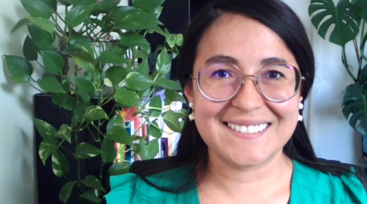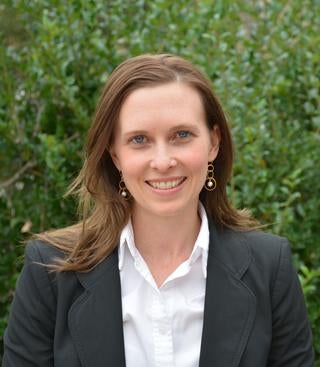Researchers Ann Cheney and Evelyn Vázquez in the UCR School of Medicine’s Department of Social Medicine, Population, and Public Health have received $113,514 in funding from the Desert Healthcare District and Foundation Board for a project that will “mitigate psychological trauma and mental health disparities in immigrant communities during the COVID-19 pandemic.”
Psychological trauma negatively impacts the mental health and wellbeing of undocumented immigrants, mainly because it prevents access to health and social services due to shame, fear of deportation, language barriers, and distrust in government agencies.
The yearlong project implements community-based health interventions to mitigate psychological trauma in three immigrant communities in the Eastern Coachella Valley, or ECV, an area characterized by a shortage of mental health professionals: migrant Latino farmworkers, the Purépecha, and recently relocated Oasis mobile home park residents. The Purépecha are a Latin American indigenous group from Michoacán, México.

“The COVID-19 pandemic has heightened psychological trauma, which, along with structural racism, contributes to mental health disparities in immigrant communities in the EVC,” said Vázquez, an assistant professional researcher and principal investigator of the grant.
Vázquez explained that the project will build on statewide efforts to implement restorative circles — culturally sensitive community-based group sessions facilitated by mental health professionals and community health workers also known as promotoras — to build capacity to address community mental health disparities in the ECV.
“We will do this building peer capacity by training the promotoras in psychological first aid for immigrants,” she said. “We will identify discussion topics for restorative circles and implement and evaluate the effectiveness of restorative circles as community health interventions to mitigate trauma and mental health disparities. Our promotoras will play a pivotal role in engaging the community and increasing trust from the community to our project.”
The team of promotoras includes Sonia Rodriguez, Marisol Peña, and Mary Bautista. They will be led and organized by community investigator Conchita (Maria) Pozar.

The project builds on the pilot restorative circles implemented in statewide efforts funded by the National Institutes of Health Community Engagement and Alliance, or CEAL, initiative. Vázquez is one of the lead investigators in California to develop the concept, which she plans to further develop within the context of Latino immigrant communities.
“In the last two years I have been involved in data collection and analysis of COVID-19 related projects,” Vázquez said. “One of the main findings of these projects is the high prevalence of trauma and fear among underrepresented communities of color.”
Last year, Vázquez attended “The 7th Certificate in Psychological First Aid for Migrants, Refugees, and Displaced Persons,” organized by Iniciativa Ciudadana para la Promoción de la Cultura del Diálogo, or Citizen Initiative for the Promotion of Dialogue Culture, in collaboration with the UC Berkeley Health Initiative of the Americas.
“This critical space increased my awareness of the need for community-based interventions to heal trauma and mental health disparities among Latinx immigrant communities,” Vazquez said.
Vázquez and Cheney believe it is vital that higher education institutions keep working closely with community members from historically disadvantaged backgrounds.
“We advocate for better conditions and institutional support to partner with non-English speaking and undocumented communities,” Vázquez said. “Along with our promotoras, we are a tri-lingual team: English, Spanish, and Purépecha. Representation and language humility are two pathways that for us, as health disparities researchers, we must follow to ensure the voices of our community members are represented and heard whenever we are.”
Cheney said a key aspect of the project is to build capacity of promotoras to address the mental health needs of their communities during the COVID-19 pandemic.
“Through this project, promotoras will increase their knowledge of trauma in Latinx immigrant communities, ability to ask questions about community mental health needs, and skills to implement an intervention to address those needs,” said Cheney, the grant’s co-investigator and an associate professor. “Dr. Vázquez and I will provide the infrastructure and resources needed to carry out the project and support the promotoras in their efforts. This approach shifts power dynamics and expectations of who holds the capacity to implement interventions and evaluate them — a shift from academics as experts to community as experts. More projects like ours that empower communities need to be funded so we can change the culture of research and knowledge production.”